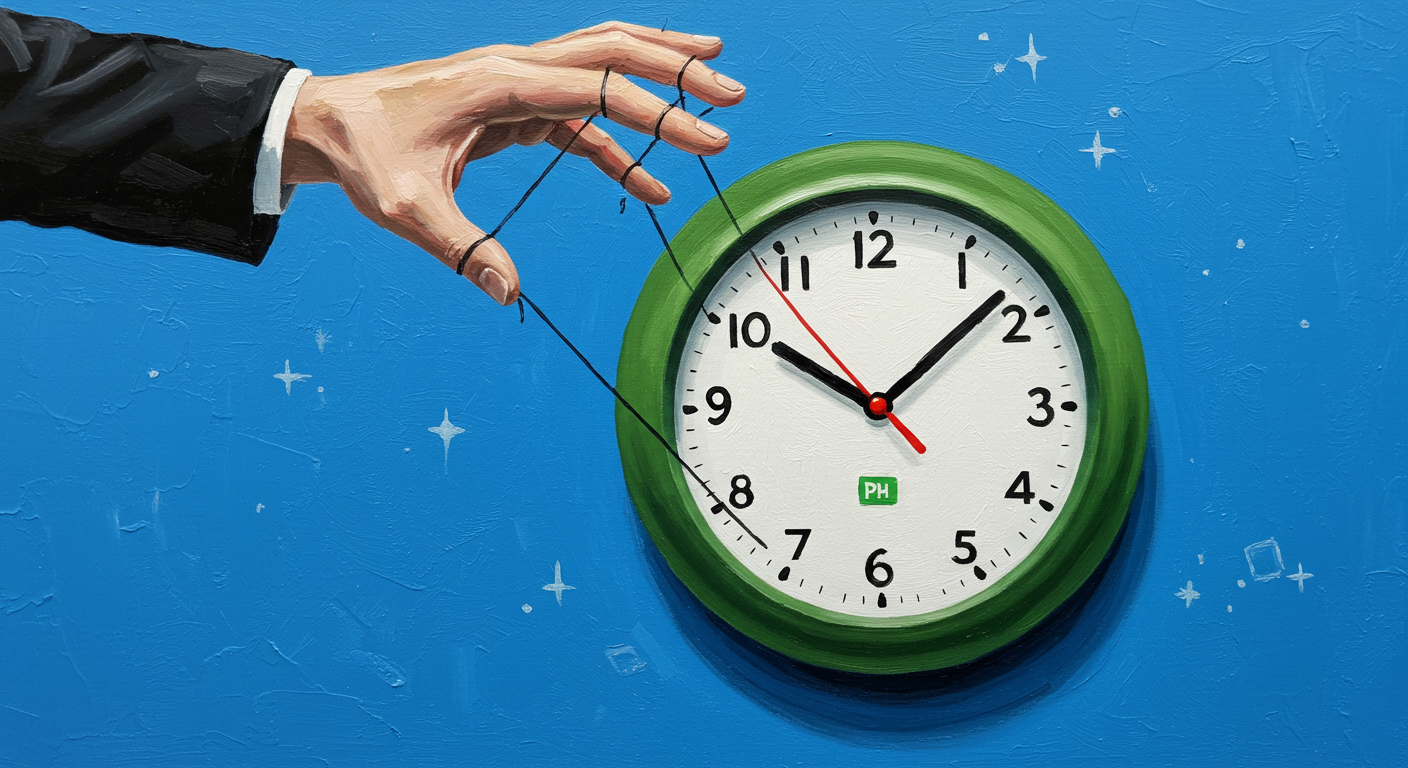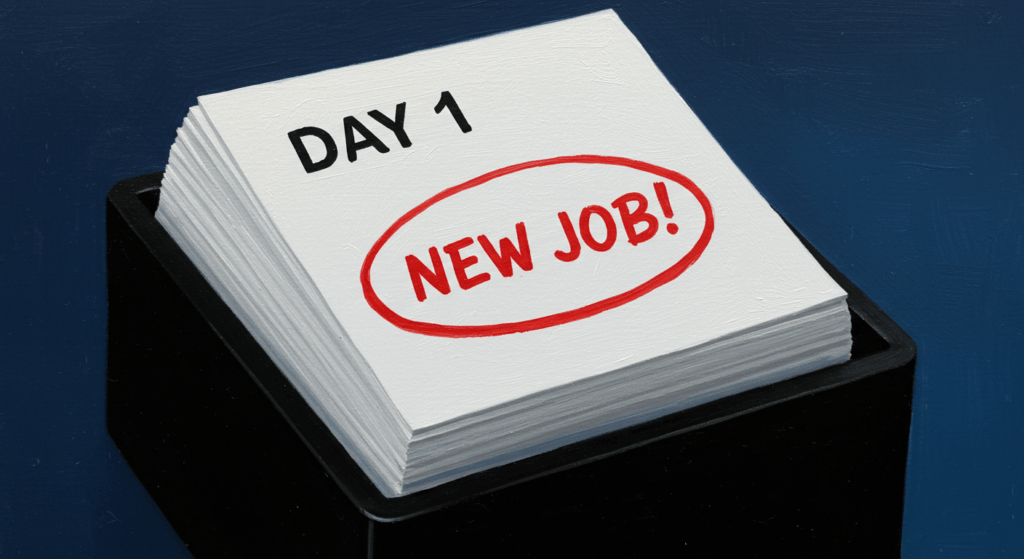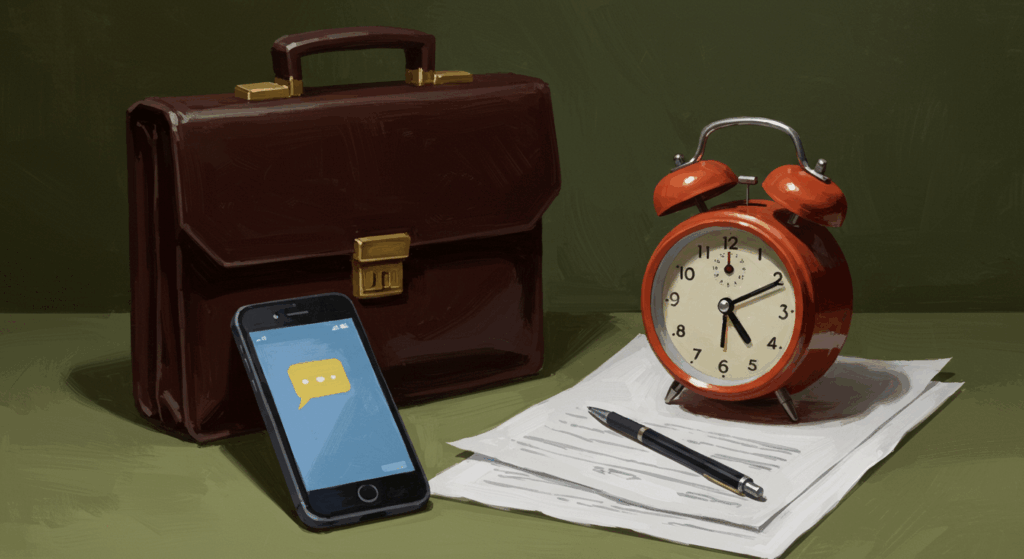So Uh… Time Management? Yeah, It’s a Thing
Alright, let’s be real for a sec. Time management? Not exactly the sexiest topic. It’s not as fun as talking about that new rom-com you just binge-watched in one night (we’ve all been there), or that weird convo you had on Hinge last weekend. But if you’re like me—and like, every other 20-something tryna do this whole adulting thing—then time is probably something you feel like you never have enough of.
Like, where does it even go? You wake up, scroll TikTok for what feels like five mins (spoiler: it’s 47), suddenly it’s noon, and you haven’t even touched that thing you said you’d “definitely finish today.”
Sound Familiar? Yeah, Same
But hey, it doesn’t have to be that way. Managing your time doesn’t mean turning into a productivity robot who wakes up at 5am to drink celery juice and meditate for 90 minutes (unless that’s your vibe—no judgment). It’s more about figuring out how to do the stuff that matters without constantly feeling overwhelmed, behind, or guilty for watching one more episode. Or three. Oops.
So let’s talk about the basics of time management—real talk, no corporate fluff, just one human to another, tryna keep their sh*t together.
Why Time Feels Like It’s Just… Slipping Away
Okay, so before we dive into the how-to’s, let’s unpack the mess a little. Why do we suck at time management in the first place?
1. We’re so overstimulated
You’ve got texts coming in, your group chat blowing up, Spotify autoplaying emotional bops, TikTok screaming your name, AND you’re trying to work or study? It’s like trying to do yoga in the middle of a mosh pit.
The truth is, our brains weren’t built to handle this much stuff all at once. Constant notifications = constant distractions = constant stress.
2. We underestimate how long things take
Ever been like, “Oh yeah, I’ll knock this out in like 20 minutes” and then it takes you two hours and a mental breakdown? Yup. Same. We tend to misjudge how long things actually take—especially when we’re multitasking or procrastinating (which is basically a sport at this point).
3. We’re low-key perfectionists
Ngl, a lot of us avoid doing things not because we’re lazy—but because we’re scared we won’t do it perfectly. So we put it off… and off… until it becomes this huge, looming cloud of anxiety and regret. (Shoutout to every unfinished project on my desktop.)
Okay Cool, But How Do You Actually Manage Your Time?
Alright, now that we’ve acknowledged the chaos, let’s get into what you can do about it. I’m not gonna throw some one-size-fits-all schedule at you, ‘cause we’re all different. But here are some time-tested (lol) methods and ideas you can tweak for your own lifestyle.
Find Your Rhythm (No, Not a Dance Thing… Unless?)
Everyone’s got a different vibe. Some of us are night owls who do our best work at midnight with lo-fi beats and existential dread. Others are morning people who like to start the day with a green smoothie and a to-do list (teach me your ways).
Start paying attention to when you feel most focused and energized. That’s your prime time. Protect it like it’s your last slice of pizza.
Once you know your natural flow, try to schedule your most important stuff during those hours. Emails and low-effort tasks can wait for your slump times.
The Magical Power of To-Do Lists (But Make Them Fun)
Okay, hear me out: to-do lists can be sexy. Or at least satisfying. There’s something about checking stuff off that gives you a tiny serotonin hit. Like, yes, I did finally reply to that email I’ve been ignoring for a week. Look at me go!
But instead of making a massive, overwhelming list of everything under the sun, try this:
- Pick 3 priorities per day. Just three. Not thirty. Not thirteen. Three.
- Add in 1-2 “bonus” tasks you could do if you have extra time.
- Keep it visible. On your desk, as a phone widget, scribbled in your journal—whatever works.
Also? Don’t forget to add self-care stuff to the list. “Go for a walk” or “read 10 pages” or “text back that one friend before they think I hate them.”
Use Time Blocks, Not Just Vibes
Look, I love a vibe-based day as much as anyone. But if you’re just floating around hoping productivity will strike you like lightning… you might be waiting a while.
Time blocking basically means giving specific chunks of your day to specific tasks. It sounds rigid, but actually gives you more freedom.
Example:
- 9–11am: Deep work / focus stuff
- 11–12pm: Emails + snack (important!)
- 12–1pm: Lunch / doomscroll (optional but likely)
- 1–3pm: Meetings or admin tasks
- 3–4pm: Break / walk / do nothing and breathe
- 4–6pm: Creative work or project stuff
Try it for a day or two. You don’t have to be perfect, just start noticing what works.
Pomodoro Technique: It’s Not Just a Fancy Pasta Name
If you’re constantly drifting off mid-task or finding yourself knee-deep in Instagram reels about sea otters (why are they so cute tho??), the Pomodoro technique is clutch.
Here’s the gist:
- Work for 25 mins (set a timer)
- Take a 5-min break (stand up, hydrate, stretch, vibe)
- Repeat 4 times, then take a longer break (like 20-30 mins)
It works because your brain loves structure. And mini rewards. Like, “Oh, I only have to focus for 25 minutes? Cool, I got this.” Then boom—you’re actually doing the thing.
Time Audit (aka “Where TF Is My Day Going?”)
Sometimes, the best way to fix your time issues is just to look at them in the face. Try tracking how you spend a typical day or two. Literally write it down in a notes app or use a time tracking tool.
You’ll prob be surprised. Like, “Oh wow, I really did spend 4 hours on Reddit arguing about which Pokémon is most emotionally damaged.”
It’s not about guilt, just awareness. Once you see the patterns, you can tweak ’em.
Real Life: When You’re Balancing Work, Side Hustles, and Just… Life
If you’ve just started your first 9-5 (or even a 10-6, let’s be honest), it can feel like everything else gets squeezed out. Social life? Gone. Creative hobbies? Who?? Sleep? Optional, apparently.
This is where the First Job Starter Pack really hits hard. You suddenly realize that working a full-time job, eating healthy, maintaining relationships, and also “following your dreams” is a lot. Like, a lot a lot.
So here’s the tea: You won’t do it all perfectly. And that’s okay.
Try to prioritize your non-negotiables each week—like your mental health, basic human needs (eat something green maybe?), and one or two things that make you happy just because.
Time management isn’t about cramming your life full—it’s about creating space for what actually matters to you.
Little Hacks That Kinda Slap
Sometimes, the smallest tweaks make the biggest difference. Here’s a bunch of random but helpful stuff:
- Phone in another room. Seriously. Out of sight, out of scroll.
- Spotify focus playlists. Try “Deep Focus” or “Lo-Fi Beats.” Instant study zone.
- Notifications OFF. You don’t need to know the second someone likes your meme.
- Theme your days. Like “Admin Mondays” or “Creative Thursdays.” Helps keep things organized.
- Batch similar tasks. Group your emails, errands, or phone calls. It’s faster and less draining.
- Say no sometimes. Don’t be afraid to protect your time. You’re not rude—you’re just not available 24/7.
But What If You Still Don’t Feel “Productive”?
Okay, hot take: productivity isn’t the only goal. You are not a machine. Some days, your body or brain just needs a break. You’re not lazy—you’re human.
Time management should support your life, not take it over. If you’re always chasing “more” and still feeling behind, maybe it’s not a time problem—it’s a pressure problem.
Try this instead:
- Define what success looks like for you that day.
- Celebrate small wins, even if it’s just “I showered and answered two emails.”
- Rest is productive too. Say it with me: rest is productive too.
Wrapping It Up: You Know It, I Promise
Look, managing your time isn’t some elite skill only Type-A productivity influencers have. It’s just a practice. Like skincare or budgeting or figuring out how to not kill your succulents.
It takes a little self-awareness, a few tools that actually work for you, and a lot of grace when you mess it up (because you def will sometimes).
If you’re just starting out—maybe in your first job, new school









